Politics
Kenyan state visit pronounces Black pride for African Americans
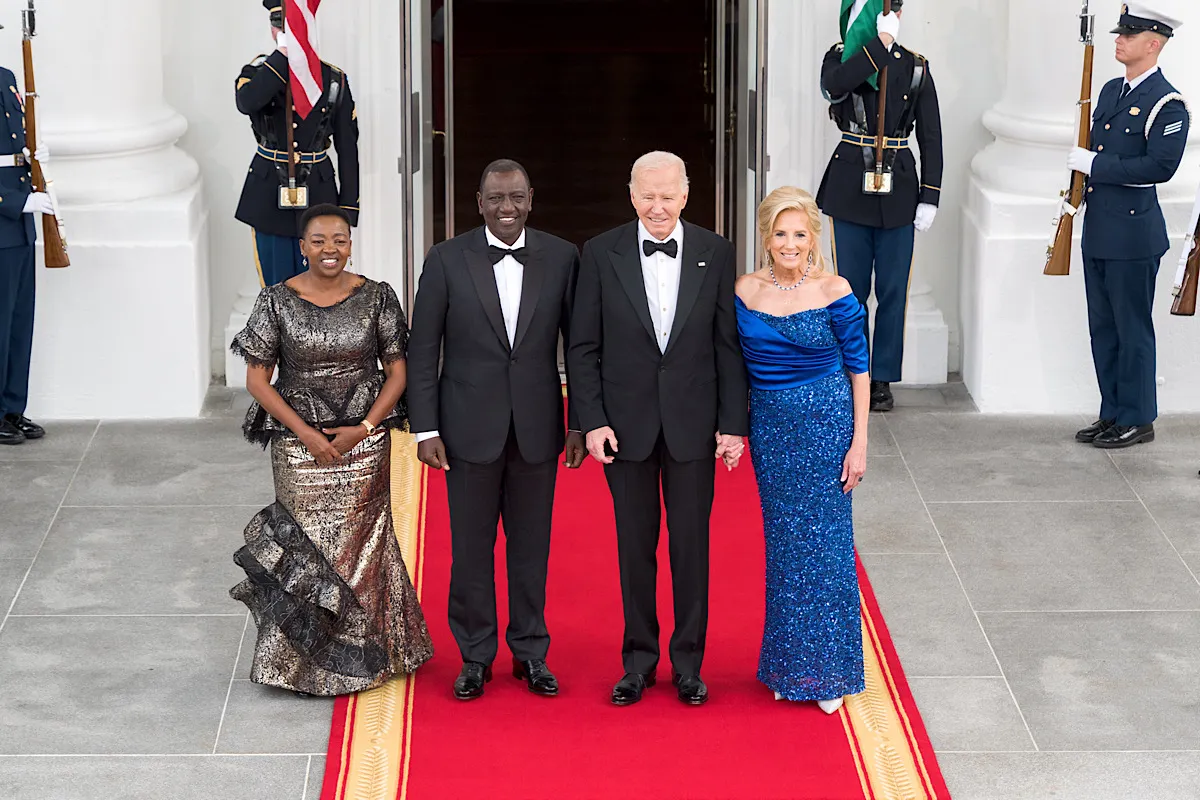
Black Americans gathered on the South Lawn of the White House to witness Kenyan President William Ruto’s state arrival hosted by President Joe Biden.
“Let me take this opportunity, in a very special way, to bring you warm greetings from the people, the government of Kenya, and your brothers and sisters across the African continent,” Ruto said.
The Kenyan president’s official trip to the U.S. is the most recent African nation to be formally embraced in this manner, with the last delegation visiting over 15 years ago. The welcome program started early in the morning and opened with hymns performed by Howard University’s Gospel Choir, a 21-gun salute and both country’s national anthem, with hundreds of guests in attendance.
“For me, I am extremely happy because he is a brother from Africa. The President is from our region so I was doubly happy to receive him,” Mathilde Mukantabana, Rwanda’s Ambassador to the U.S. told The Informer about President Ruto. “I hope they continue because those kinds of relationships can be very important. I hope more presidents will be visiting but what I can say is that it was good.”
Among an audience of hundreds were also Washingtonians, like local teacher Rictor Craig, who was invited to bring his young students to enjoy this event for the first time. As co-founder and head of school at Statesmen College Preparatory Academy for Boys in Southeast, he said the ceremony welcoming the Kenyan president left his students feeling encouraged and inspired.
“Our boys could not stop talking about that experience. They’re nine so they don’t truly understand yet,” said Craig.
“On as many occasions as we can, we try to put our boys in front of a spectrum of Black men that are successful in the world, just like the president of Kenya, like Obama. We try to show them examples of Black men leading.”
The young men were among the seated participants in the crowd, alongside both Ruto and Biden’s children. As luminaries and dignitaries welcomed the foreign leader, Biden made it clear that he was committed to partnering with Kenya in several ways.
“For while we may have been divided by distance, we’re united by the same democratic values,” Biden shared.
He announced that the U.S. Agency for International Development (USAID) would provide $1.3 million for a youth empowerment program aimed at strengthening political engagement at the subnational level and $600,000 to advance disability inclusion in Kenya.
“By undertaking this state visit, we will have the opportunity to discuss and to have a conversation about building global partnership and leadership around the issues that pose challenges regionally, globally, and in countries like Kenya and many others– challenges of climate change, challenges of insecurity, challenges around debt distress,” said President Ruto.
The nation launched the Nairobi Initiative geared toward eradicating student hunger last year. It’s well known as the largest school meal program on the continent and aims to serve 250,000 pre-primary and grade 1-8 learners in the county’s public schools with a plate daily.
Throughout Ruto’s time in America, the leader has been working to build connections with people like Tyler Perry and Atlanta Mayor Andre Dickens in hopes of creating more economic stability for his people.
The leader was granted honorary membership by the Congressional Black Caucus and designated as a non-NATO major ally by President Biden, a symbol of a more permanent political tie.
“I am making this designation in recognition of Kenya’s many years of contributions to the United States Africa Command area of responsibility globally and in recognition of our own national interest in deepening bilateral defense and security cooperation with the Government of Kenya,” said President Biden. “Kenya is one of the United States government’s top counterterrorism and security partners in sub-Saharan Africa, and the designation will demonstrate that the United States sees African contributions to global peace and security as equivalent to those of our Major Non-NATO Allies in other regions.”
Politics
Maryland Gov. Wes Moore set to issue more than 175,000 pardons for marijuana convictions
Moore plans to sign the executive order Monday morning in the capitol in Annapolis with Maryland Attorney General Anthony Brown in attendance.
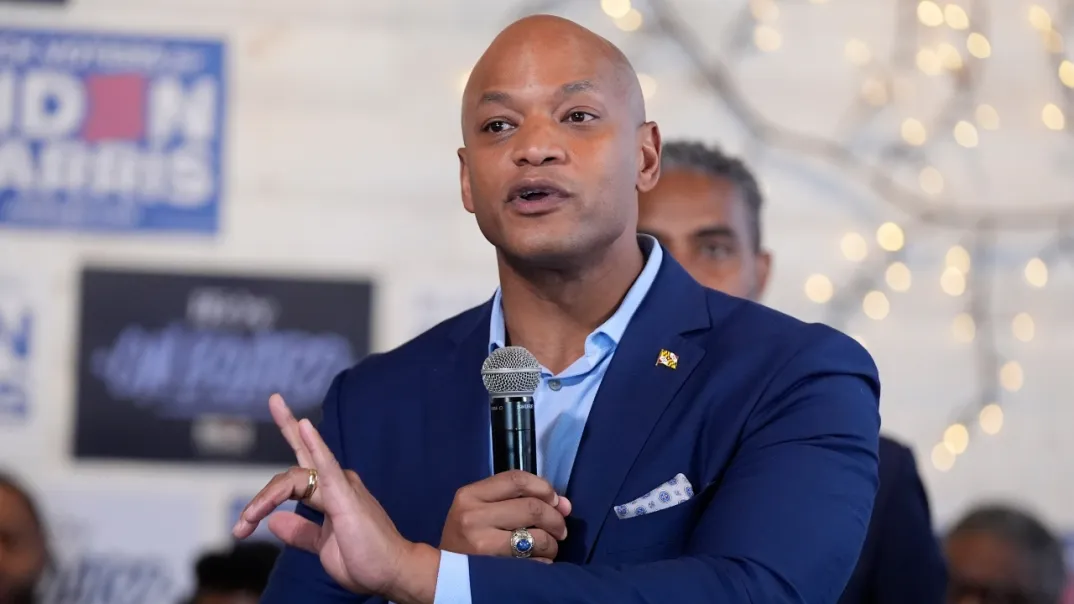
Maryland Gov. Wes Moore is scheduled to sign an executive order to issue more than 175,000 pardons for marijuana convictions Monday, the governor’s office said.
The administration is describing the pardons as the largest state pardon to date. The governor’s action regarding cases relating to use of paraphernalia make Maryland the first state to take such action, his office said.
The pardons will forgive low-level marijuana possession charges for an estimated 100,000 people, according to The Washington Post, which first reported on the order Sunday night.
Moore plans to sign the executive order Monday morning in the state Capitol in Annapolis with Maryland Attorney General Anthony Brown in attendance.
Recreational cannabis was legalized in Maryland in 2023 after voters approved a constitutional amendment in 2022 with 67% of the vote. Maryland decriminalized possession of personal use amounts of cannabis on Jan. 1, 2023. Now, 24 states and the District of Columbia have legalized recreational cannabis.
“The Moore-Miller Administration is committed to promoting social equity and ensuring the fair and equitable administration of justice,” the governor’s office said. “Because the use and possession of cannabis is no longer illegal in the state, Marylanders should not continue to face barriers to housing, employment, or educational opportunities based on convictions for conduct that is no longer illegal.”
“Because the use and possession of cannabis is no longer illegal in the state, Marylanders should not continue to face barriers to housing, employment, or educational opportunities based on convictions for conduct that is no longer illegal.”
Brown, a Democrat, described the pardons as “certainly long overdue as a nation” and “a racial equity issue.”
To read this article in its entirety, visit The Grio
International
The British Army trains in Kenya. Many women say soldiers raped them and abandoned children they fathered
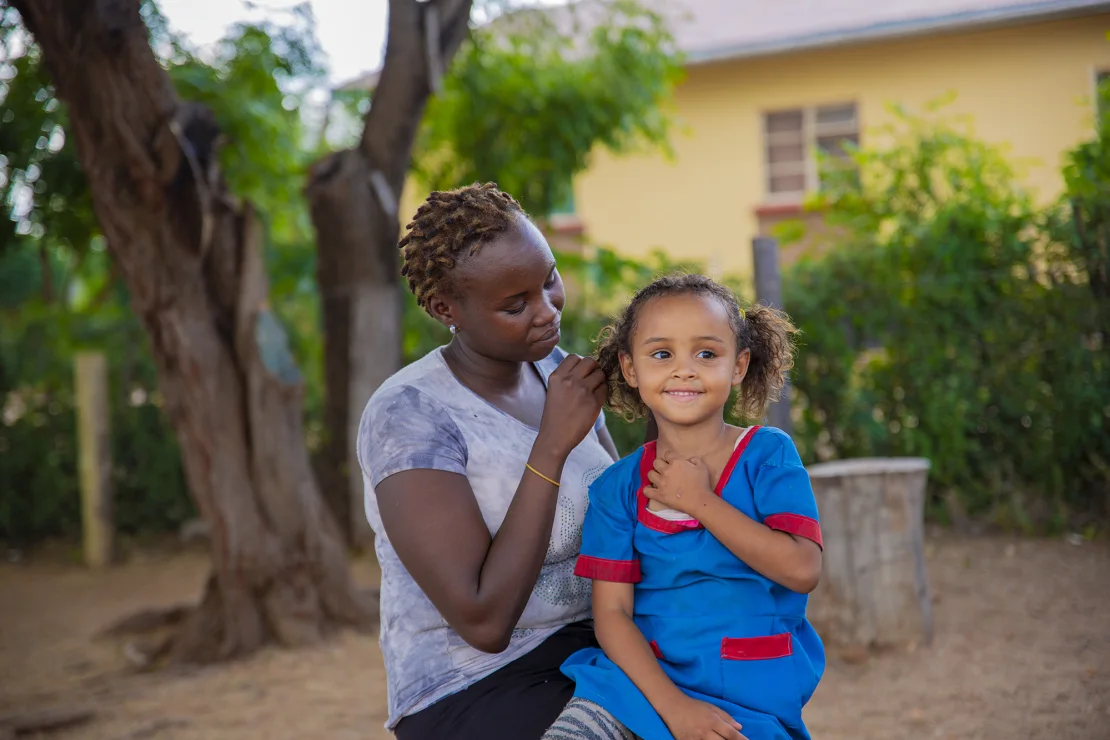
Seventeen-year-old Marian Pannalossy cuts a striking figure wherever she goes in Archer’s Post, a small town 200 miles north of Nairobi. She lives alone and is light-skinned in a place where mixed-race people are a rarity and therefore ostracized.
“They call me ‘mzungu maskini,’ or a poor white girl,” she told CNN at her single-room house, a tremor in her voice. “They always say ‘Why are you here? Just look for connections so that you can go to your own people. You don’t belong here. You’re not supposed to be here suffering.’”
Marian believes that her father was a British soldier, but she has never met him. She does not even know his name.
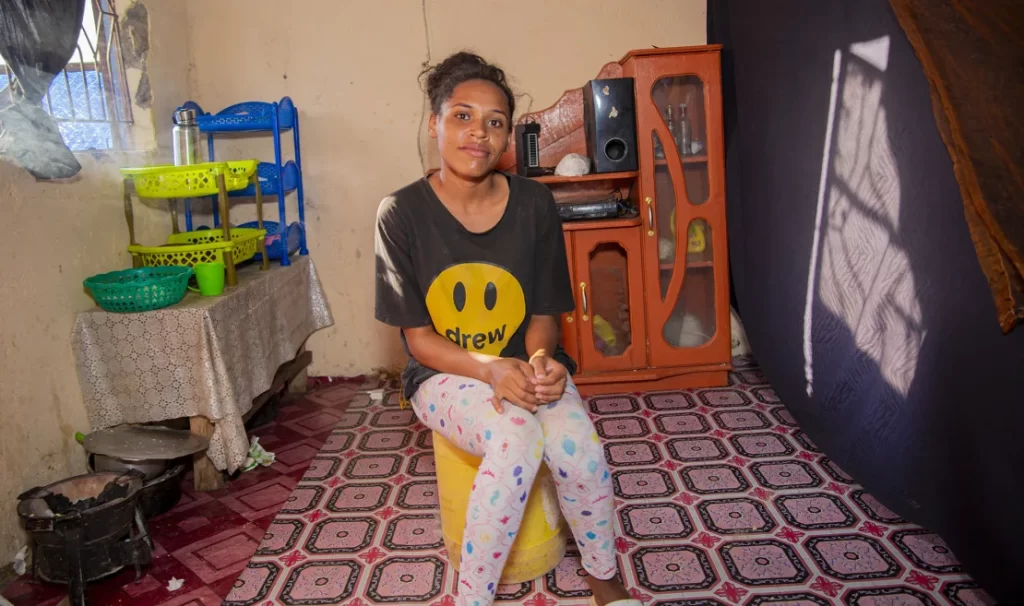
Marian Pannalossy pictured at her home. Festo Lang/CNN
Marian is among a group of mixed-race children whose mothers say they were conceived after rape by British soldiers training in Kenya. Her mother, Lydia Juma, was among hundreds of Kenyan women who filed complaints with the UK military over the years, as documented by Kenya’s human rights body.
“I don’t know why God is punishing me. I don’t understand,” Juma said through tears in a powerful 2011 documentary, ‘The Rape of the Samburu Women.’
Marian, aged four at the time, sat on her lap, sometimes hugging her mother as she wept and recounted how she was violated and the suffering she had endured since.
To read this article in its entirety, visit CNN
Politics
Oklahoma Supreme Court dismisses lawsuit of Tulsa Race Massacre survivors seeking reparations
The nine-member court upheld the decision made by a district court judge in Tulsa last year.
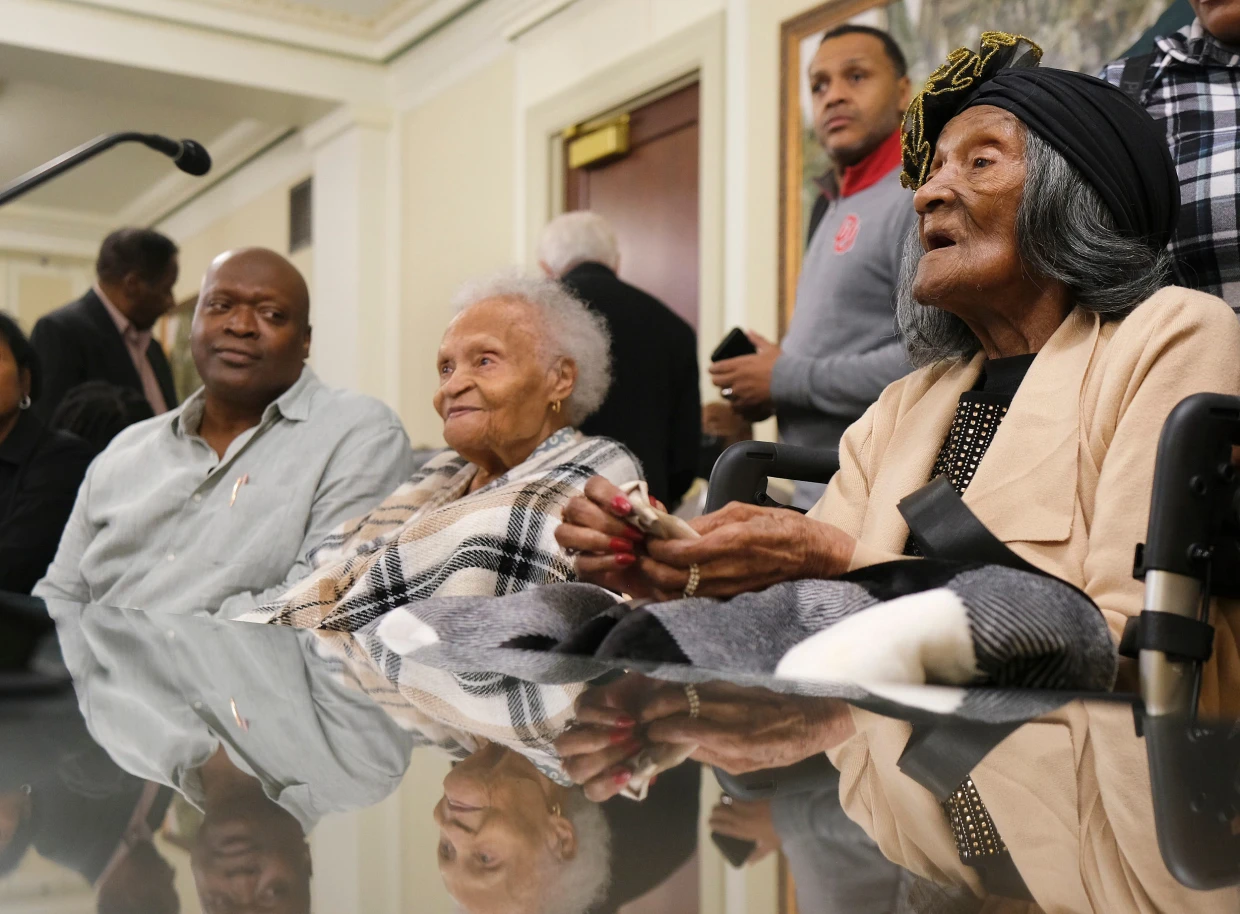
The Oklahoma Supreme Court on Wednesday dismissed a lawsuit of the last two survivors of the 1921 Tulsa Race Massacre, dampening the hope of advocates for racial justice that the government would make amends for one of the worst single acts of violence against Black people in U.S. history.
The nine-member court upheld the decision made by a district court judge in Tulsa last year, ruling that the plaintiff’s grievances, although legitimate, did not fall within the scope of the state’s public nuisance statute.
“We further hold that the plaintiff’s allegations do not sufficiently support a claim for unjust enrichment,” the court wrote in its decision.
Messages left Wednesday with a spokesperson for the City of Tulsa and the survivors’ attorney, Damario Solomon-Simmons, were not immediately returned.
The suit was an attempt to force the city of Tulsa and others to make recompense for the destruction by a white mob of the once-thriving Black district known as Greenwood. In 1921 — on May 31 and June 1 — the white mob, including some people hastily deputized by authorities, looted and burned the district, which was referred to as Black Wall Street.
As many as 300 Black Tulsans were killed, and thousands of survivors were forced for a time into internment camps overseen by the National Guard. Burned bricks and a fragment of a church basement are about all that survive today of the more than 30-block historically Black district.
To read this article in its entirety, visit NBC News
-

 International4 months ago
International4 months agoForced to rebuild a life at 12, a Haitian girl joins thousands seeking an escape from gang violence
-
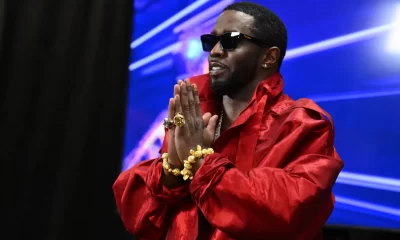
 Opinion4 months ago
Opinion4 months agoUnlike Other Badly Behaved Black Celebrities, Diddy’s Shot at Redemption Is Nearly Impossible
-

 The Culture3 months ago
The Culture3 months agoChicago teen who entered college at 10 earns doctorate at 17
-

 Business3 months ago
Business3 months agoHow Uncle Nearest Founder Fawn Weaver Built A Billion-Dollar Whiskey Business
-

 Entertainment4 months ago
Entertainment4 months agoBiggie’s Mom, Voletta Wallace, wants to ‘slap the daylights out of Sean Combs’
-
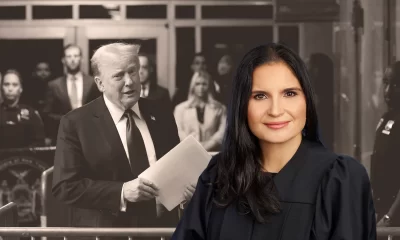
 Politics3 months ago
Politics3 months agoJudge Aileen Cannon rips up court schedule in Mar-a-Lago case in ways that benefit Trump
-
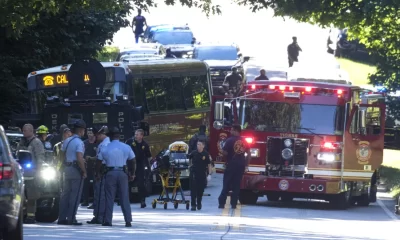
 Crime3 months ago
Crime3 months agoBus passengers frantically texted loved ones as gunman hijacked an Atlanta commuter bus during rush hour
-

 Justice4 months ago
Justice4 months agoMan convicted of Chicago murder based on blind witness’ testimony sues city, police





